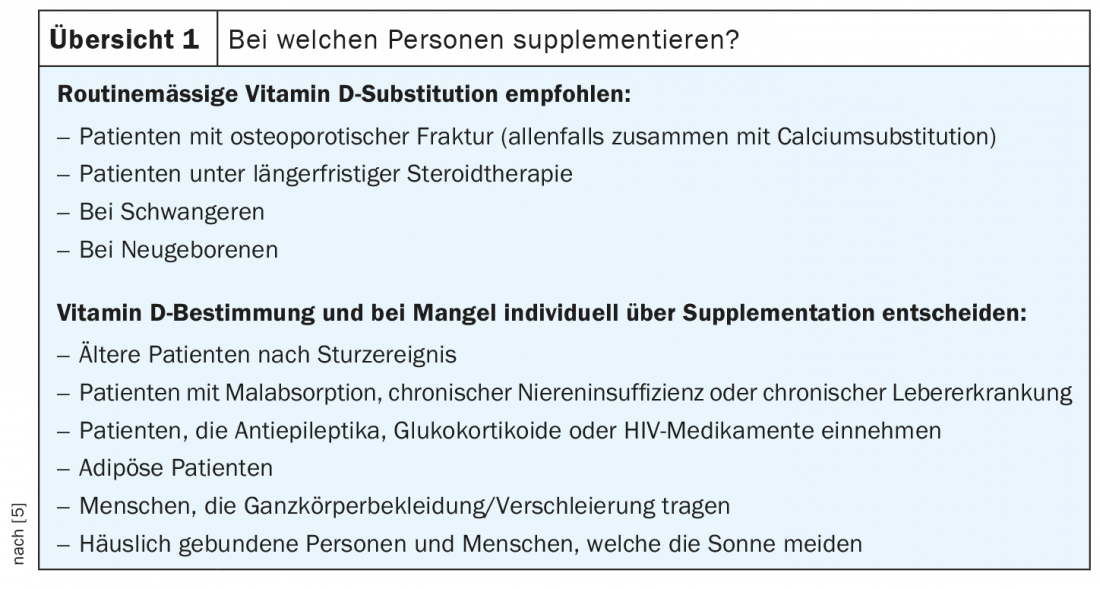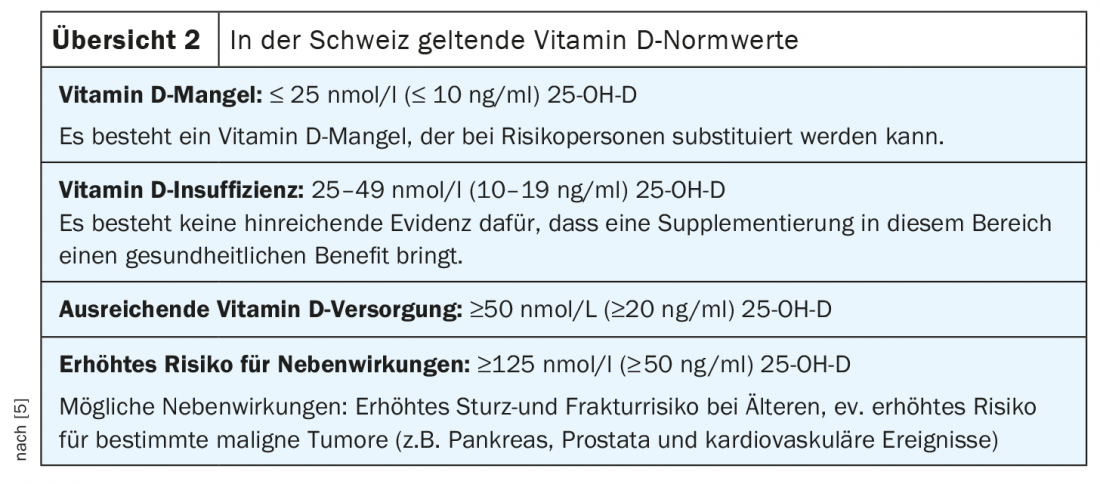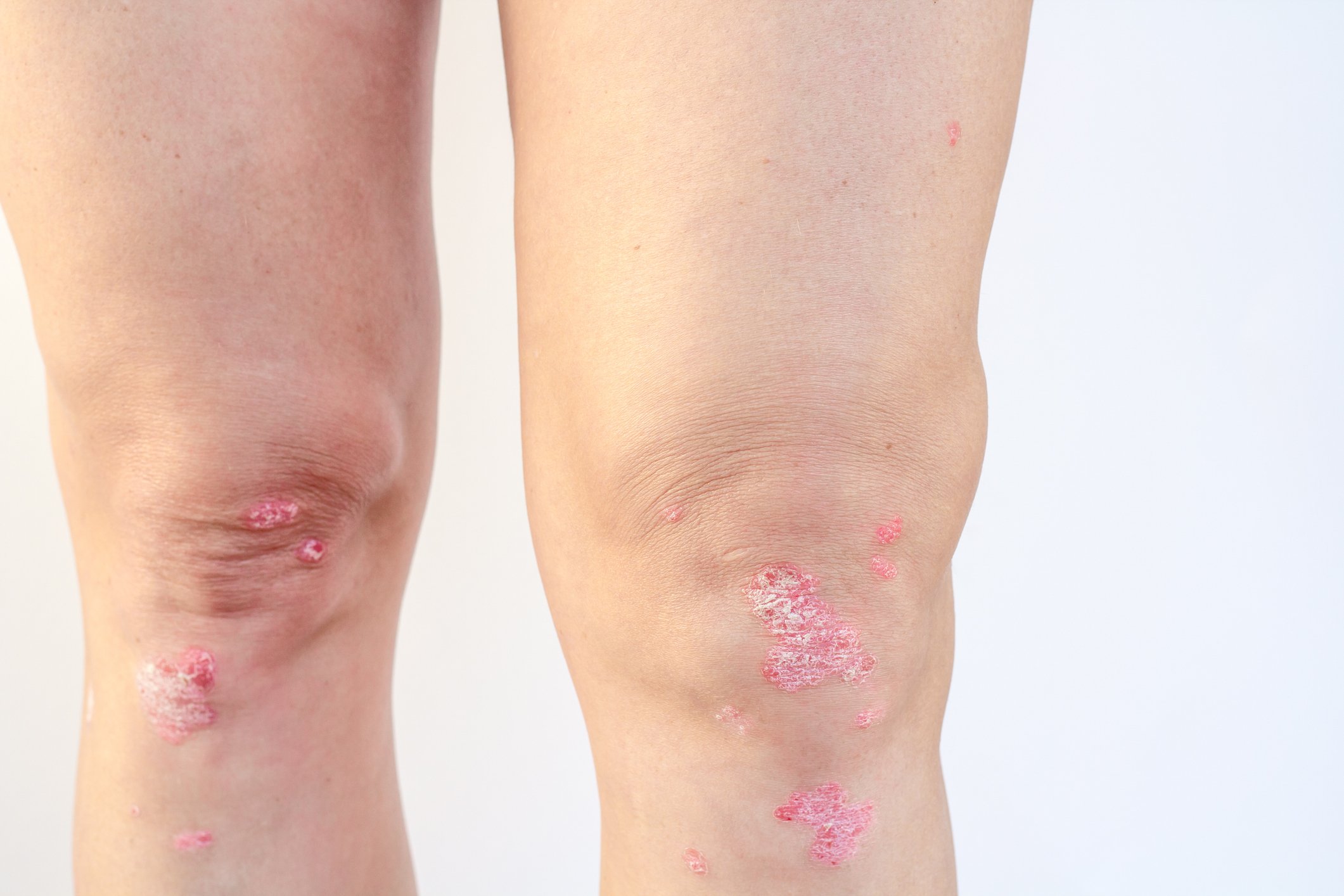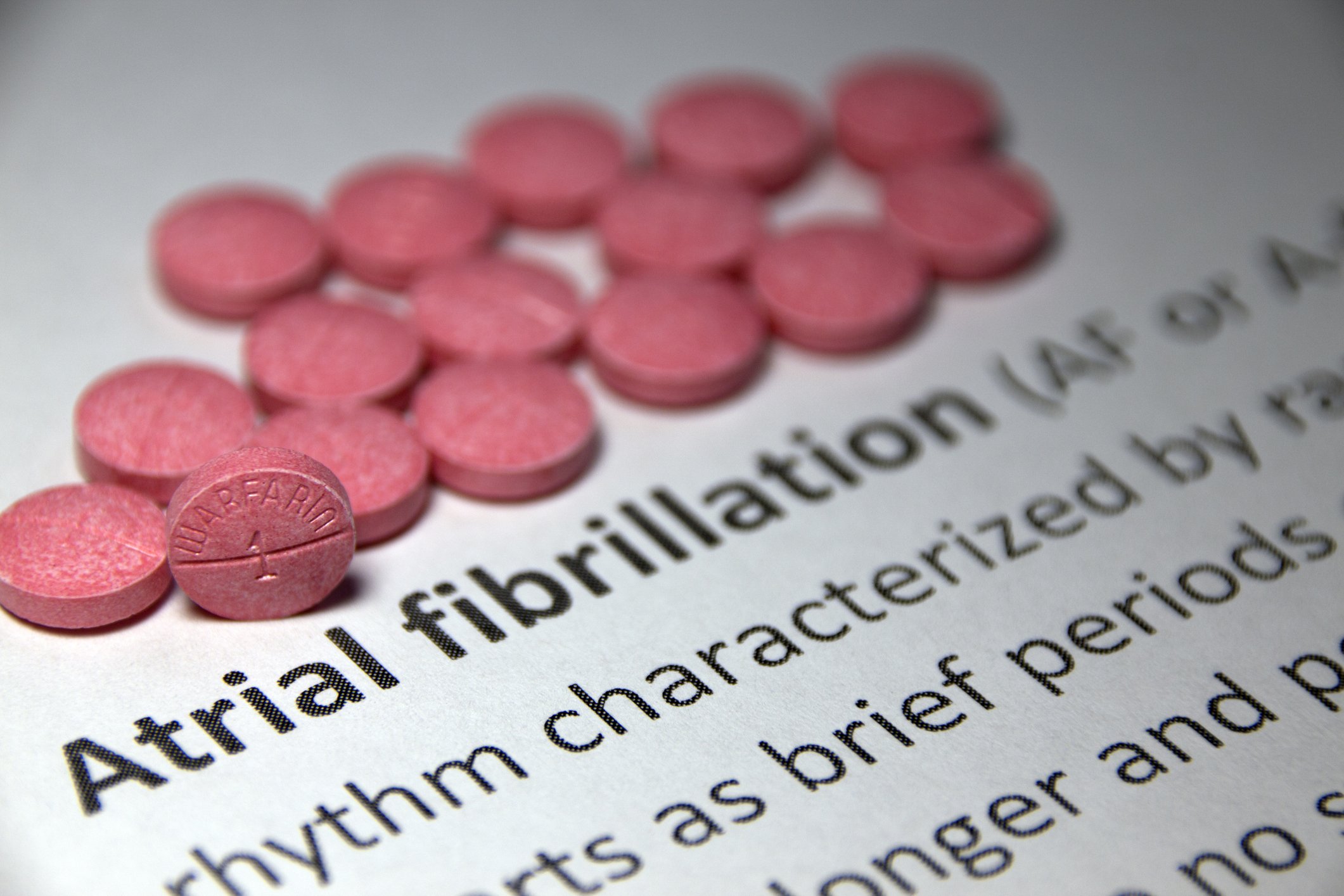Recent scientific publications have brought back into focus the debate on a possible protective role of vitamin D supplementation for severe COVID-19 progression. When interpreting the study findings, however, it is important to bear in mind that these are associations and no causal relationship can be derived from them. The benefit of vitamin D supplementation in certain risk groups with osteological or musculoskeletal complaints is undisputed. Benefit is also expected in certain other indications.
A recent meta-analysis concluded that severe COVID-19 courses are 64% more likely to be vitamin D deficient than mild courses [1,2]. Inadequate vitamin D levels were inversely associated with an increased risk of hospitalizations (OR 1.81, CI 1.41-2.21) and excess mortality (OR 1.82, CI 1.06-2.58) [2]. In this context, the question arises whether vitamin D administration might be useful for COVID-19 infection prophylaxis or therapy. International professional societies have issued current statements on this subject.
In a recently published expert statement, the German Society of Endocrinology assessed the current evidence as insufficient for a preventive effect of vitamin D in the context of COVID-19 [3]. The National Institute for Health (NICE) of the United Kingdom also came to this conclusion based on a comprehensive secondary analysis of study findings [4]. That an association exists between vitamin D status and a worse clinical COVID-19 course was confirmed, but no causal relationship could be inferred from this. According to the German Society of Endocrinology [3], it remains an individual decision of the physician and patient whether the measurement of vitamin D levels and any vitamin supplementation is useful or not. There are also recent publications on the fact that an overdose of vitamin D can have harmful effects [6,7]. As a pragmatic solution, the professional society therefore suggests 400-1000 IU vitamin supplementation per day to ensure adequate vitamin D supply in risk groups [1].
The patients considered at risk according to the Swiss guidelines are shown in overview 1.


Assess the question of supplementation individually
The effects of vitamin D on bone health are well established empirically [1] and in all the discussions on possible effects on COVID-19 infection, it should not be forgotten that for certain osteological or musculoskeletal risk groups there is an established need for vitamin D supplementation, which also applies in the context of COVID-19 [1,3]. Outside the indication of bone health, however, the data situation so far remains “without clear evidence of a benefit of vitamin D,” concluded the German Society for Endocrinology in a statement published in February of this year [3]. On the one hand, there are numerous empirical findings on associations of the vitamin D signaling pathway with immune system function and tumorigenesis [3]. On the other hand, vitamin D is downregulated in the context of inflammatory processes, and there are numerous pathophysiological explanations for reverse causality pointing to low vitamin D levels as a consequence rather than a cause of adverse health events. The vitamin D standard values applicable in Switzerland are shown in overview 2 .
Literature:
- DGE: Vitamin D in COVID-19? Professional society recommends compromise for high-risk patients, Feb. 12, 2021, www.endokrinologie.net/pressemitteilung/vitamin-d-bei-covid-19.php, (last accessed Mar. 12, 2021).
- Pereira M, et al: Vitamin D deficiency aggravates COVID-19: Systematic review and meta-analysis. Crit Rev Food Sci Nutr 2020: 1-9. doi: 10.1080/10408398.2020.1841090.
- DGE: Statement, Feb. 11, 2021, www.endokrinologie.net/aktuelles-details/stellungnahme-vitamin-d-corona-pandemie.php (last accessed Mar. 12, 2021).
- NICE guideline NG187 Evidence reviews for the use of vitamin D supplementation as prevention and treatment of COVID-19. December 2020, www.nice.org.uk (last accessed 12/03/2021).
- National Institute for Health and Care Excellence. COVID-19 rapid guideline: vitamin D. NICE guideline NG187 Published: 17 December 2020. www.nice.org.uk/guidance/ng187 (last call 12.03.2021)
- Appel L, et al: The Effects of Four Doses of Vitamin D Supplements on Falls in Older Adults. A Response-Adaptive, Randomized Clinical Trial Ann Intern Med 2021 doi:10.7326/M20-3812.
- Pham H, et al: The effect of vitamin D supplementation on acute respiratory tract infection in older Australian adults: an analysis of data from the D-Health Trial. Lancet Diabetes Endocrinol 2021; published online Jan 11. doi.org/10.1016/S2213-8587(20)30380-6.
- Medix: Guidelines 2020, www.medix.ch/wissen/guidelines/stoffwechselkrankheiten/vitamin-d-mangel, (last accessed Mar. 12, 2021).
HAUSARZT PRAXIS 2021; 16(4): 20











